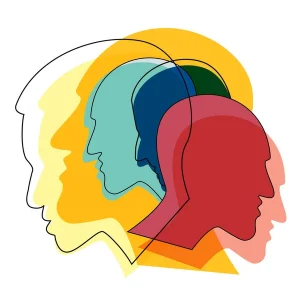Introduction:
Understanding psychosis vs schizophrenia is essential when discussing mental health conditions, as these terms are often used interchangeably but refer to different things. This article will explore the key differences between psychosis and schizophrenia, helping to clarify the confusion for those seeking better awareness.

What is Psychosis?
When comparing psychosis vs schizophrenia, psychosis is a broader term. It refers to a condition that affects how a person interprets reality, often leading to hallucinations, delusions, and a loss of contact with the real world. Psychosis can be a symptom of various conditions, including mental health disorders like schizophrenia, as well as drug abuse or physical illness.
For those seeking Best Schizophrenia Treatment, consider visiting:
What is Schizophrenia?
Schizophrenia, as part of the psychosis vs schizophrenia comparison, is a specific mental health disorder that includes episodes of psychosis. However, schizophrenia is a more complex, long-term disorder affecting not only a person’s perception of reality but also their cognitive abilities, behavior, and emotional responses. Schizophrenia often involves chronic symptoms that need lifelong management.
5 Key Differences Between Psychosis and Schizophrenia
1. Definition and Scope
- Psychosis: When considering psychosis vs schizophrenia, psychosis is a symptom and not a diagnosis. It can arise from multiple conditions, including substance abuse or other mental health disorders.
- Schizophrenia: Schizophrenia is a distinct psychiatric disorder that includes psychosis but also involves other cognitive and behavioral challenges.
2. Duration and Course
- Psychosis: In the psychosis vs schizophrenia context, psychosis can be temporary, triggered by external factors like drugs or stress, and may resolve with treatment.
- Schizophrenia: Schizophrenia, however, is a lifelong condition that requires ongoing treatment and can involve multiple episodes of psychosis.
3. Symptoms
- Psychosis: The symptoms of psychosis, when comparing psychosis vs schizophrenia, include hallucinations, delusions, and confused thinking. These symptoms can appear and disappear depending on the underlying cause.
- Schizophrenia: Schizophrenia involves not just psychotic symptoms, but also cognitive difficulties, disorganized thoughts, and emotional blunting. These symptoms tend to persist, making schizophrenia a more comprehensive disorder. For more information visit Centers for Disease Control and Prevention (CDC)
4. Diagnosis
- Psychosis: Diagnosing psychosis can be challenging as it can be a part of various conditions. In the psychosis vs schizophrenia distinction, psychosis is considered a symptom of schizophrenia, but can also be present in disorders like bipolar disorder or depression.
- Schizophrenia: Schizophrenia is diagnosed based on long-term symptoms, including psychosis. For a diagnosis of schizophrenia, symptoms must persist for at least six months.
5. Treatment Approach
- Psychosis: Treatment for psychosis focuses on addressing the root cause. In the psychosis vs schizophrenia comparison, psychosis might be resolved once the triggering factor, such as drug use, is treated.
- Schizophrenia: Schizophrenia requires long-term, ongoing treatment, involving both psychotherapy and support. Managing schizophrenia involves addressing psychosis along with other chronic symptoms like cognitive impairment. For further information visit World Health Organization (WHO)
Can Psychosis Develop into Schizophrenia?
In the psychosis vs schizophrenia comparison, it is important to note that while psychosis can occur in various mental health conditions, not all individuals who experience psychosis will go on to develop schizophrenia. Early intervention and treatment are key to preventing psychosis from evolving into more severe mental health issues like schizophrenia.
Early Intervention and Help
Whether facing psychosis vs schizophrenia, early intervention is crucial. Both conditions require timely diagnosis and treatment for better long-term outcomes. Seeking professional help is the first step toward managing either psychosis or schizophrenia effectively. For more information visit National Institute of Mental Health (NIMH)
Conclusion
In the debate of psychosis vs schizophrenia, it’s essential to recognize that while these terms are related, they represent different aspects of mental health. Psychosis is a symptom that can occur in various mental health conditions, whereas schizophrenia is a long-term disorder that includes psychosis along with other cognitive and emotional challenges. Understanding the differences between psychosis vs schizophrenia can lead to better diagnosis, treatment, and support for individuals affected by these conditions.

